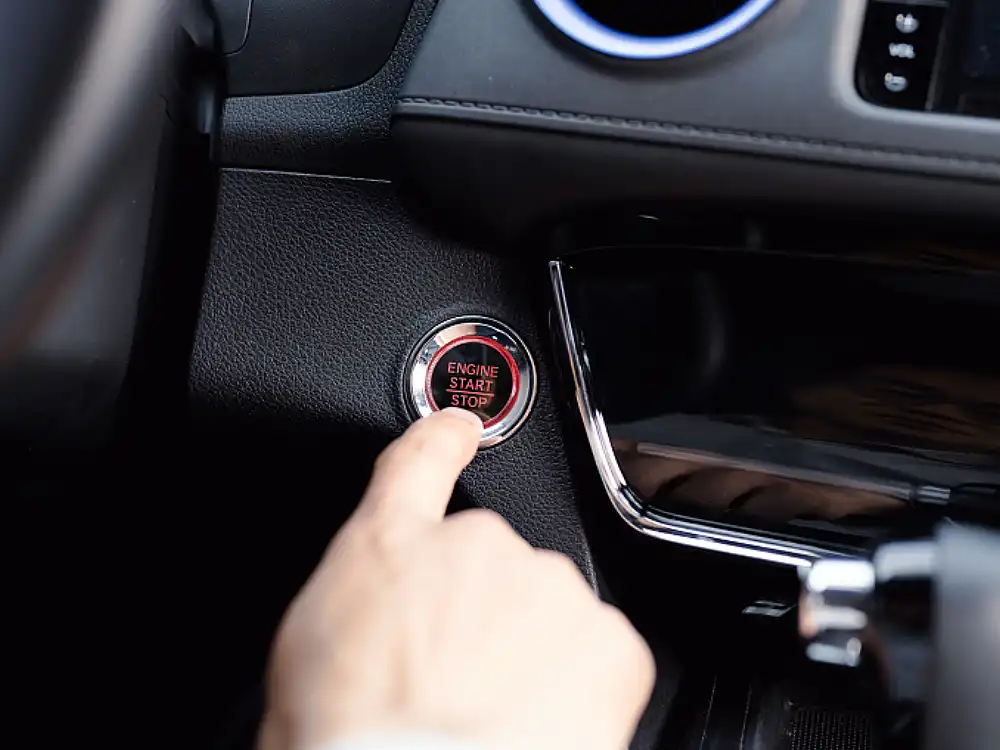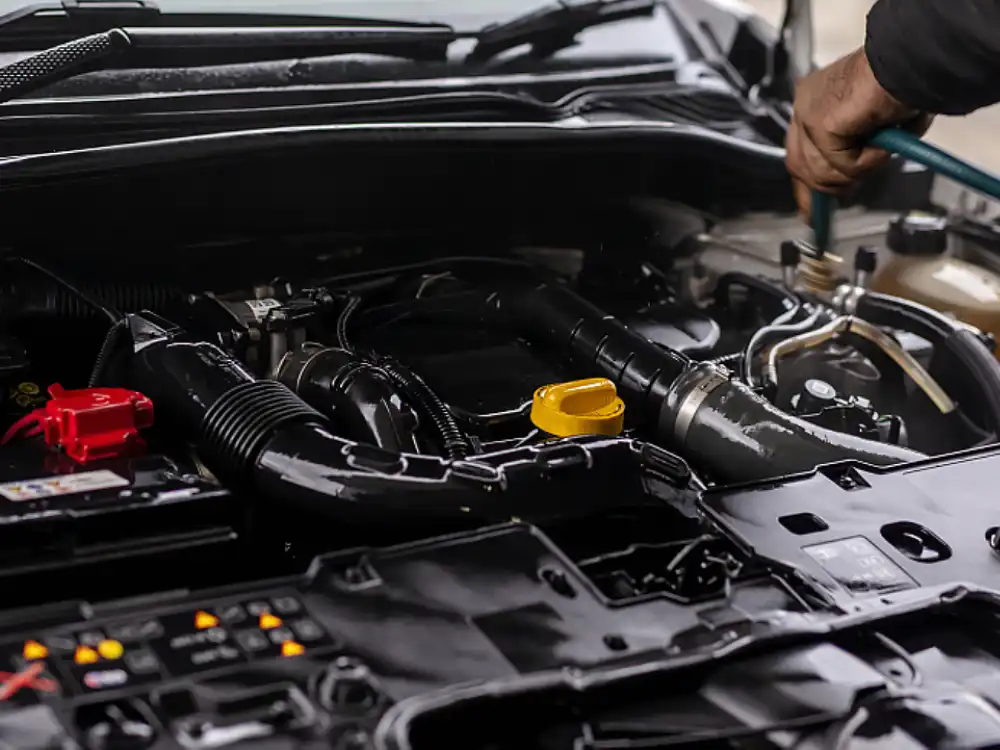
Introduction:
The alternator is a critical component in every vehicle, ensuring seamless operation. Its significance becomes apparent when issues surface. In this article, we’ll explore the complexities of the alternator, an essential powerhouse that maintains your vehicle’s electrical balance. From flickering lights to a sluggish engine start, these subtle signals could indicate your alternator needs attention.
What Does an Alternator Do?
Before we look at the signs of a failing alternator, let’s understand what it does. Your car’s alternator converts mechanical energy into electrical energy to generate electricity. The battery starts the engine. While it operates, the alternator maintains the flow of electricity.
An alternator’s primary purposes are broken down here:
Electricity Generation:
The alternator’s main job is to change engine power into electricity. To do this, a wire coil spins in a magnetic field and makes an alternating current.
Battery Charging:
Recharging the vehicle’s battery is largely dependent on the alternator. Even with the engine running, it uses electricity to charge the battery.
Power Supply to Electrical Components:
The alternator powers various car parts, such as lights and air conditioning. This ensures that these components operate while the engine is running.
Voltage Regulation:
Alternators have a voltage regulator to stabilize the electrical system. This part prevents the output voltage from getting too high. It stops the battery from getting overcharged and protects the sensitive electronics.
The alternator functions as a power generator to maintain the vehicle’s electrical system operational. It charges the battery and helps important parts run. A modern car needs it to work well and perform its best.
What are Common Symptoms of an Alternator?
An essential part of the electrical system in your car is the alternator. It works to provide power to important details. Yet, like any other part, the alternator can have problems. These problems show specific signs of a possible alternator malfunction. It is critical to recognize these indicators to act quickly to stop a breakdown. Here are the key indicators of a bad alternator.
Dimming Lights:
If your alternator is faulty, your lights, like the headlights and interior lights, may dim. The alternator has trouble keeping the power steady, so the brightness changes.
Warning Light Illumination:
Modern cars have a warning light on the dashboard that looks like a battery. If this light illuminates while driving, it signals potential alternator problems. Ignoring it may lead to a breakdown.
Strange Noises:
A bad alternator can make abnormal noises, like whining or grinding sounds. These say mechanical issues within the alternator warrant immediate attention.
Electrical Failures:
Electrical failures can happen when the alternator malfunctions. Power windows may move, dashboard gauges might act, or radio issues can occur.
Dead Battery:
A dead battery may not seem related to the alternator. But, a failing alternator can make the battery lose power. If you experience dead batteries, the alternator could be the culprit.
To avoid sudden car problems, stay alert for signs of a bad alternator and fix them. This will keep your vehicle’s electrical system working well. To keep your alternator working well, check it and watch for these signs.
Recognizing the signs of a bad alternator is crucial for vehicle maintenance. Dim lights signal a problem, and warning lights indicate an issue. Unusual noises also say a problem.
Electrical failures like slow power windows can cause alternator problems. A car’s battery dying a little more often than usual could also be a sign of alternator issues. Common causes include worn-out bearings, faulty diodes, and belt problems.
It is possible to start a car with a faulty alternator. But, it can only rely on the battery for a short time. This leads to a gradual loss of power, and the engine dies. Day-to-day inspections and on-time repairs are essential for preventing breakdowns. These inspections and repairs ensure the health of the vehicle’s electrical system.

What Causes an Alternator to Go Bad?
There are many reasons that can lead to the deterioration of the alternator. To prevent damage and make it last longer, it’s crucial to know why these issues happen. Here are common reasons why alternators may go bad:
Worn-out Bearings:
Over time, the internal bearings within the alternator can wear out due to continuous use and exposure to heat. Worn bearings create friction, leading to increased resistance and potential alternator failure.
Faulty Diodes:
The alternator has semiconductor devices called diodes. AC (Alternating current) is converted to DC (Direct current) through the diodes for the vehicle’s electrical system. When it stops working, a diode can mess up the conversion process and the alternator’s power.
Belt Issues:
A belt usually drives the alternator. The damaged or worn belt negatively affects the alternator’s performance. To avoid alternator problems, checking and changing the serpentine belt is important.
Corrosion:
The flow of electricity will be blocked by the corrosion of terminals and alternator connections. If there is moisture, contaminants, or corrosion buildup, it can disrupt electrical connections. This can lead to alternator failure.
Heat and Overcharging
Excessive heat can damage the insulation of the alternator windings. This can cause short circuits and the alternator to fail. A malfunctioning voltage regulator can cause overcharging, leading to overheating and alternator damage.
Manufacturer Defects:
Sometimes, alternator failure happens because of problems during manufacturing or low-quality parts. Even though they don’t happen often, these problems can still cause the alternator to fail early.
General Wear and Tear:
Alternators can undergo depletion, like any mechanical part. This depletion is due to continuous rotation, heat exposure, and electrical load.
To maintain your vehicle, regularly inspect the serpentine belt for corrosion. It will help you in getting to the issues early on. It’s important to check the electrical system, too. Remember these things to make your alternator last longer and prevent sudden breakdowns while driving.
Is It Possible For a Car Run with a Bad Alternator?
If your car has a bad alternator, it can run quickly, but it could be better and safer. The alternator is important for your car’s electrical system. If it fails, there are significant consequences. Here’s why your car can’t run smoothly with a bad alternator:
- Dependency on the Battery: The alternator generates electricity when the engine runs. It depends on the battery. It charges the battery and supplies power to various electrical components. When the alternator fails, your car becomes solely reliant on the battery.
- Limited Battery Capacity: The battery can power important parts for a bit but doesn’t last long. The battery will deteriorate if you keep using it for a long time without charging.
- Stalled Engine: The ignition system and fuel injection might stop working if the battery runs out of power. This can result in the engine delaying, leaving you stranded.
- Loss of Electrical Systems: If the alternator stops working, the lights, power windows, and radio may also stop working gradually. As the battery’s charge diminishes, these components will stop working.
- Risk of Complete Breakdown: Attempting to drive with a bad alternator is risky. If the battery can’t supply enough power, your car might break down, especially if you’re far from help.
If your car’s alternator is failing, it may start and run for a short time. But, this is not a sustainable condition. If you only rely on the battery and don’t charge it, your vehicle could break down completely. If you have a problem with your car’s alternator, it’s essential to fix it quickly. Do this to avoid getting stuck and keep your car’s electrical system in good shape. To keep your car running smoothly, maintain and fix the alternator regularly and on time. This will prevent any issues.
Conclusion
To sum up, all car owners must know the signs of a faulty alternator and what causes it to fail. The alternator is necessary for a steady flow of electricity, even though people often forget about it. Motorists can take action early by noticing dim lights, warning lights, and strange noises. Regular maintenance is essential because it prevents alternator failure. Worn-out bearings, faulty diodes, or belt issues can cause this. Drivers can prolong the life of their alternators and avoid sudden breakdowns by dealing with these factors.
Is it possible to drive a car with a bad alternator? This question shows how the alternator and battery depend on each other. A vehicle can start if the alternator fails but can’t rely on the battery for long. The engine will lose power and stall. Knowledge empowers in the realm of automotive care. To improve your driving, check and repair your alternator for a better experience. Drivers can feel confident on the road by fixing alternator problems and paying attention to the signs in this article. They will know their car’s electrical system is robust.
